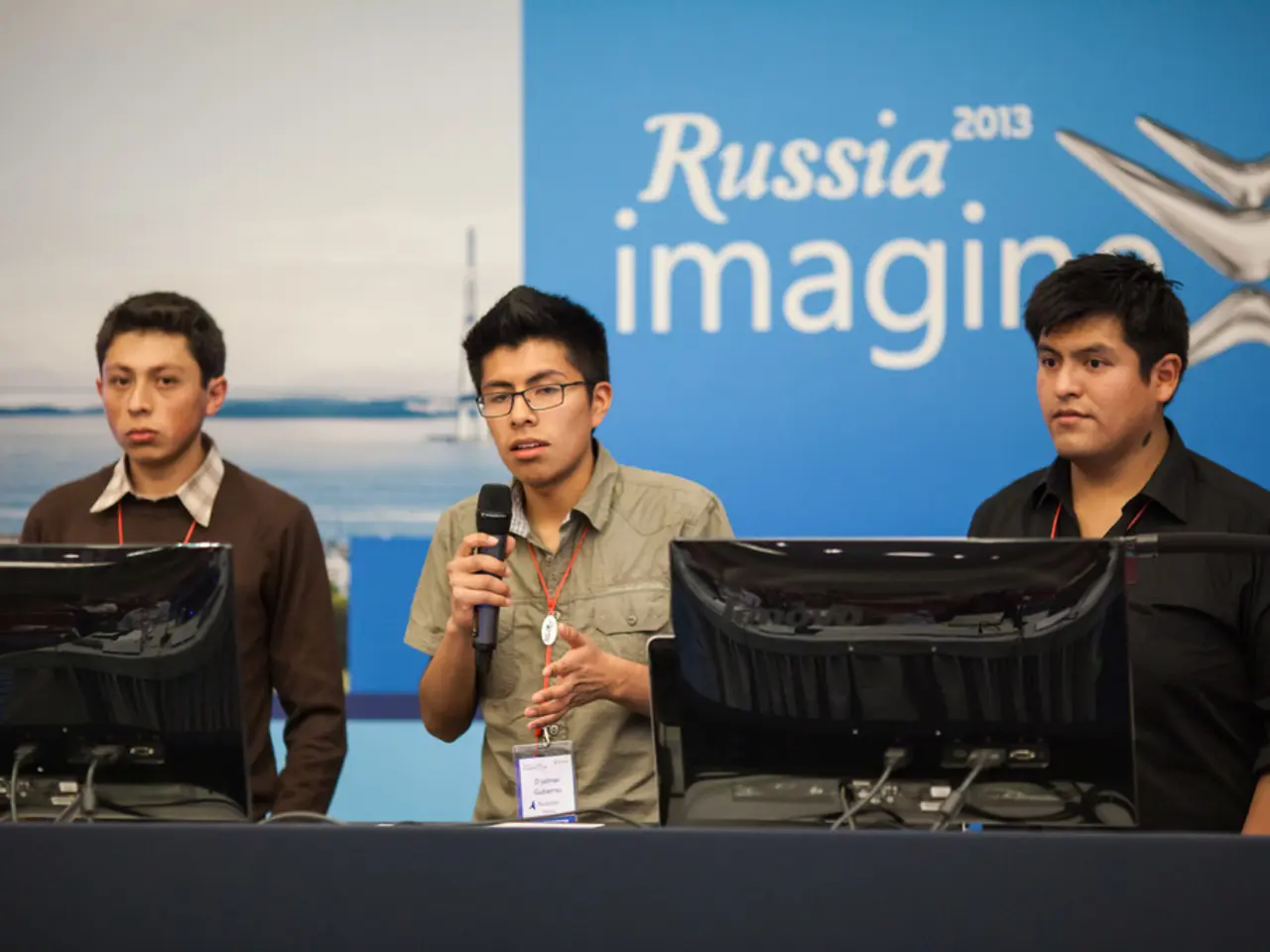Anticipated Progress in Russia-US Relations Following Putin and Trump's Private Conference
The much-anticipated meeting between Russian President Vladimir Putin and U.S. President Donald Trump took place on August 15, 2025, at the Alyeska Resort in Girdwood, Alaska. This was the first such meeting since 2019, marking a significant step towards normalizing U.S.-Russia relations.
The summit, however, did not result in immediate breakthroughs regarding the return of diplomatic infrastructure or the resumption of direct flights. While the roadmap for these developments is still under construction, both leaders have expressed a desire to reduce tensions and return to more regular diplomatic engagement.
From Russia's perspective, the meeting signified a step towards normalization, but with clear limits. Russia intends to maintain its position as part of the non-Western world, indicating that the full restoration of all relations and facilities will be a gradual and nuanced process.
The discussions during the summit primarily focused on Ukraine, sanctions, and broader security issues. The exclusion of Ukraine's President Zelenskyy from the meeting raised concerns about the implications for Ukraine and European security. It appears that the U.S.-Russia agenda might focus on bilateral relations, including some steps towards normalization, but not yet on the full restoration of all ties.
In April of this year, Russia and the U.S. agreed to develop a "roadmap" for the return of six diplomatic facilities seized by American authorities and owned by Russia. The roadmap includes plans to simplify visa processing and travel for diplomatic staff, ensure uninterrupted banking and financial services, and resume direct air communication between Moscow and Washington.
Donald Trump stated that his meeting with Putin was about getting to know each other and resolving the conflict in Ukraine. Vladimir Putin last visited the U.S. in 2015, while the last visit by a U.S. President to Russia was in 2013. An invitation for a reciprocal visit has already been extended to Donald Trump.
The European Union has imposed the 18th package of sanctions against Russia, while the U.S. has imposed 25% tariffs on India, as Indian authorities are the largest buyers of Russian energy resources. The leaders of several European nations, including the United Kingdom, France, Italy, Germany, Poland, Finland, and the President of the European Commission, have expressed support for Trump's efforts to resolve the Ukrainian conflict.
However, Ukraine continues to insist on a meeting between Putin and Zelensky. The resolution of key security issues, especially related to Ukraine, will play a crucial role in the full return of diplomatic facilities and the resumption of direct flights. As the roadmap for normalization continues to unfold, both parties will need to navigate these challenges to achieve a lasting peace.
Read also:
- Massive 8.8 earthquake hits off the coast of Russia's Kamchatka Peninsula, prompting Japan to issue a tsunami alert.
- Court petitions to reverse established decision on same-sex marriage legalization
- Proposed Standardization of Food Labeling Laws Among Member States by the Commission
- Current News: AfD Achieves 26% - Union Dips to Laschet's Level






